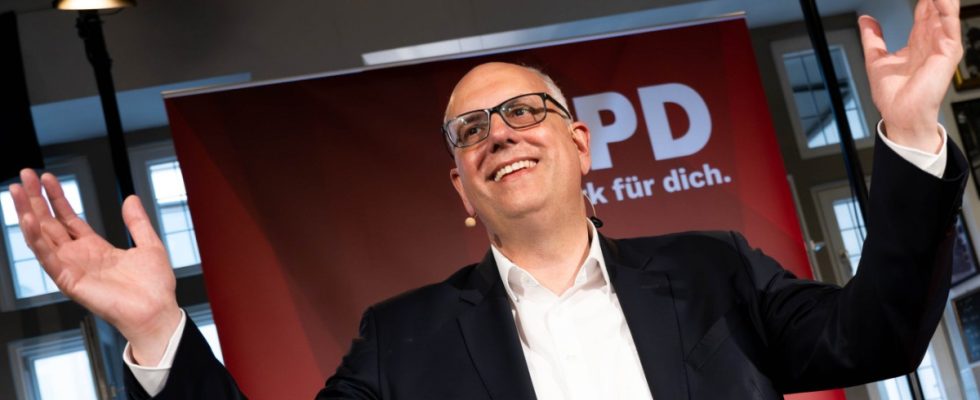Shortly before the election, Maike Schaefer also became known throughout Germany. As a green transport senator, who had abolished the much-loved “Brötchentaste” in Bremen on April 1st. With the short-term parking ticket, drivers could park for up to 20 minutes in the city center free of charge. Most recently, even the mayor of Bremen had opposed his own transport senator on this issue – SPD man Andreas Bovenschulte said he understood the displeasure of retailers.
Now the Greens are the big losers in the Bremen elections, they only got twelve percent. “Changes are never easy. We can see that in the election results,” Schaefer said on Sunday evening. One night and a few hours later, the 51-year-old announced her resignation, lamented “the lack of tailwind from Berlin” and that Robert Habeck had caused great damage with the heating dispute and “nepotism” in his ministry. “My political career is over,” said Schaefer, who also admitted her own “technical errors”.
After the election losses on Sunday, the Bremen Greens still have two power options: to govern again with the SPD and the left in a new edition of the “R2G” coalition. Or in a traffic light with SPD and FDP, which is extremely unlikely. It’s not enough for black-green in 2023; even if the official final result of the Bremen election is not expected until this Wednesday.
The “citizens in anger” can imagine a “bourgeois coalition” in Bremerhaven
Only the SPD, which has governed the smallest federal state without interruption for almost 80 years, has the privilege of being able to choose its coalition partner in Bremen. The incumbent and designated mayor of Bremen, Andreas Bovenschulte, rushed to Berlin on Monday, where the SPD executive board met for a meeting. On Sunday evening he had announced that he wanted to talk “with all democratic parties” about forming a government. Bovenschulte has only excluded “citizens in anger” from probing: “This is a right-wing populist party, with which there are no similarities in politics.”
Its founder and top candidate for Bremerhaven, Jan Timke, said at a press conference on Monday morning that he could imagine a “bourgeois coalition” in Bremerhaven in the long term. In the smaller of the two cities, according to the projections, his party had become the second strongest force and had won more than 20 percent; in Bremen 9.7 percent. This is the first time that the “Citizens in Anger” have entered the Bremen Parliament as a faction.
The Bremen CDU with its leading duo of the President of the Bremen Parliament, Frank Imhoff, and the legal trainee Wiebke Winter is still hoping for a grand coalition with the SPD, presumably in vain. The most likely variant in Bremen is a new edition of the red-green-red coalition.

